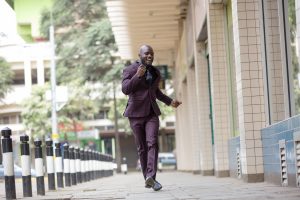
A sermon offered by The Rev’d Ann Edwards 23 January 2022
I saw An American in Paris this week. The lead actors were true triple threats – they sang, danced and acted with equal ability. The ensemble, the design, the orchestra, the lighting – everything coalesced. The sets were coordinated interacting elements of lighting, physical structures, and digital projection. As much as the leads were the leads, in each scene, as they interacted with the rest of the cast. Diverse skills with cooperation and coordination made for something that would be unachievable without any part. Each element complemented and elevated the others.
We left last week with Paul correcting the Corinthian’s attitudes towards giftedness. There are no gifts or roles that elevate one person above another, and there are a diversity of gift, activities and services that intentionally gifted by the Holy Spirit because they are necessary for a healthy community. Prophesy – the work of speaking the truth and encouraging and building each other and the church community – is the gift that everyone should seek to have.
In the text we read this week, Paul reinforces the themes we explored last Sunday – that there are a variety of gifts, services and activities that are instigated by the Holy Spirit, and the diversity is both necessary and intentional, and he will again pick the theme up in later chapters. But the allusions we’ve heard to the church as a body are a sharp twist in Paul’s argument.
This metaphor of the body as a community, particularly relating to the need for cooperation, honour and respect is not unique to Paul – the argument had been made by Socrates and Plutarch centuries before. It would have been a familiar analogy to Corinthian ears. In an orderly Graeco-Roman society, everyone knew their place. Feet were feet, hands were hands. Honour was given to those with social importance and wealth. That was the socio-political body. Neat, discrete, and ordered. The social structures in that world were taught as natural – some people are “naturally” superior others are inferior.
But Paul disrupts the Corinthian’s expectations and build on the same analogy to create a metaphor for diversity, equity and interdependence. The body parts are given voices, which was quite the innovation. Socrates certainly didn’t give the eye or ear a voice.
When the body parts start talking, those saying “I have no need of you!” sound arrogant, don’t they?
And the parts of the body that say they don’t belong – it sounds dejected, perhaps even sullen. We know that our bodies aren’t bits and pieces that can wander off and do their own thing, that can decide if they belong or are rejected. The whole idea is absurd.
Paul notes that body parts are typically treated in one of three ways.
Some body parts are noticed and admired by the world and culture. These body parts need the rest of the body to do that work – the eye is limited if the neck won’t turn the head.
Other body parts are less impressive, have less status, or are overlooked in the world. Yet our lungs would be in trouble without our diaphragms, and our fingers would be useless without the stable support of the shoulder.
And to discuss or see some body parts is taboo: those parts of the body that are sexual in nature, or that create bodily emissions that were considered unclean. It is proper that these body parts are covered – not to diminish them but to respect them and their function.
So, establishes Paul, honour and shame relating to body parts is not a natural attribute – it is an artificial description. There’s no one part of our bodies better than another, and none is worthy of shame or honour as such. We attribute these ideas to them.
So it is in the community – there is no natural order that elevates one person above another – there is diversity, and a variety of gifts that is deliberately given for the good of all.
The body requires a range of diverse and interrelating parts, to be whole. Obvious talents or resources, that impress the world, need to be considered in the context of other roles and abilities that provide the less visible support for their activity. If the world overlooks someone’s contribution, God sees it because God intended for that person to give that particular gift. If someone is treated in a way that is shameful, if they are hidden and avoided – we must remember that God intended them to contribute as they have, and that response by the world – to conceal or avoid – is to their honour and not shame. Each is as important as the other.
The Corinthians world was a hierarchical society that valued a person by their place in society – some people were better than others, others were less, there was honour and shame according to where you were on the ladder, that determined who you would interact with and how you were treated. Paul targets factionalism and social-stratification by invoking the idea of honour and shame that was so familiar. Shame and honour have been re-evaluated. There is no greater/more. There is no lesser person. What is seen as natural is not actually God’s way, it’s the world’s way. Shame and honour is how people are treated – and God honours those the world would treat weak or shameful.
…the members of the body that seem to be weaker are indispensable,
23 and those members of the body that we think less honourable we clothe with greater honour, and our less respectable members are treated with greater respect; 24 whereas our more respectable members do not need this.
But God has so arranged the body, giving the greater honour to the inferior member, 25 that there may be no dissension within the body, but the members may have the same care for one another.
God’s body is diverse and unified, and centred around Christ.
So each of us has a role in Christ’s community – no matter our age, our ability, or any other thing that the world might tell us makes us less useful or valuable. The world’s assessment is not real, it’s artificial.
We are to be community of members that are equally valuable and intentionally diverse. God’s work requires us to recognise that we are all essential, and to support one another. The homogeneity the world values can’t achieve God’s purposes.
How much have we learned about which gifts and services are essential for the working of society with the COVID outbreak? Supply chains, deliveries, have impacted all our lives, while positions of honour carry on much as usual, except those people might be rationing their toilet paper of course.
Our attitudes to people are just that – our attitudes. God sees each member and values them. Those that are shunned or hidden by humanity are in turn honoured by God. The very act of human rejection elevates a person in God’s kingdom.
Finally, Paul draws all of these themes together to show how closely we are related to one another, and that we depend on one another.
To have a healthy church body, we need to strive first for love. If one part of the church is suffering, and the other is happily ignoring it – the body is in trouble.
We are to be so interrelated that if one part suffers, we all suffer, and if one part rejoices, we all rejoice. The whole body resonates to beautiful music and art. A good meal nourishes all of us. When we have an earache, or an itch, we don’t say that’s the problem of the ear or skin, and ignore it. If our sisters or brothers are calling out for justice, help, or relief – that must become our own cry. In God’s kingdom, there is no fringe.
God knows what it is to be rejected. In our Gospel reading today, Jesus, full of the Spirit, returns home, to Nazareth, and in the synagogue, he reads from Isaiah:
18 ‘The Spirit of the Lord is upon me,
because he has anointed me
to bring good news to the poor.
He has sent me to proclaim release to the captives
and recovery of sight to the blind,
to let the oppressed go free,
19 to proclaim the year of the Lord’s favour.’
20 And he rolled up the scroll, gave it back to the attendant, and sat down. The eyes of all in the synagogue were fixed on him.
21 Then he began to say to them, ‘Today this scripture has been fulfilled in your hearing.’
Do you remember what happens next? Jesus was rejected. No prophet is accepted in his home town, he observes.
By identifying as Isaiah’s prophet to come, he shocked these people that knew him. How dare he?
He was rejected. Too humble in origin. Too familiar. Mary and Joseph’s son. He shouldn’t stand out – that was not his place. Perhaps his prophetic message – of redemption for the poor and blind – was too unpopular or too disruptive.
Jesus was rejected for claiming this rightful place, and declaring that he was drawing back to God all who were cast out, hidden, and shunned. And in that rejection, Jesus was honoured, and continues to draw in and unite all who are overlooked and rejected, to create his body here on Earth.
So what does this all mean to us, here, if we seek to be Christ’s body?
- Are all our talents in use? Do we value them equally?
- Are we sufficiently diverse, or do we look, sound, and act a lot like one another?
- Are some people more important than others? How many of us feel unseen?
- Can we welcome people, expecting them to be different because that’s what God intends?
- Are we each ready to support and encourage one another in the Holy Spirit’s choreography?
- Do we hear the cry of the oppressed and marginalised, and look to rejoice with those when they are liberated and included?
- May we all strive to love first, so that we might encourage and build one another in truth, in the power of the Holy Spirit.
In the name of Christ, Amen

